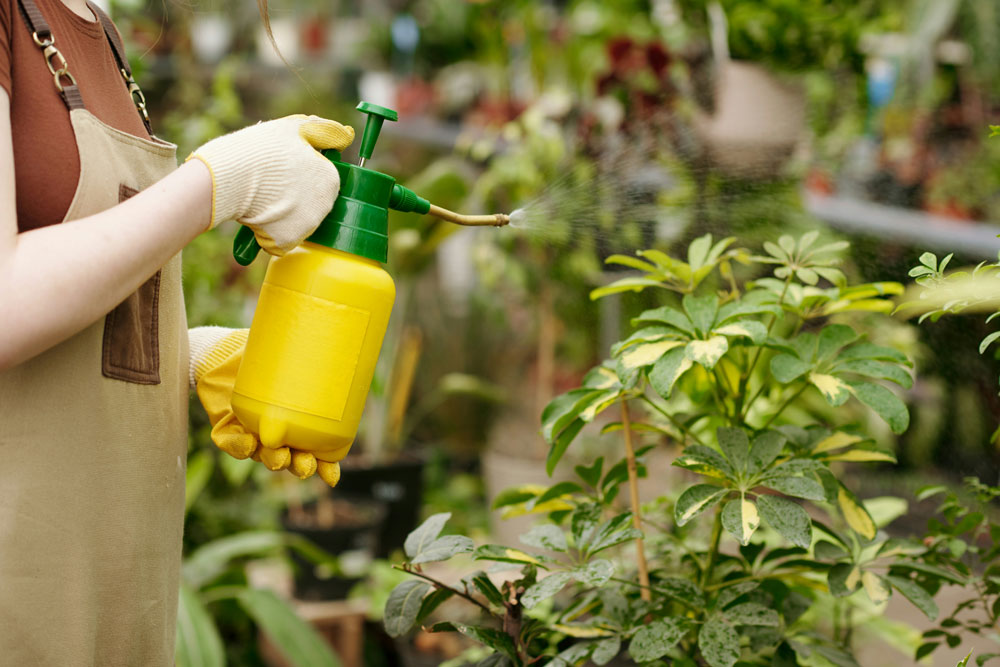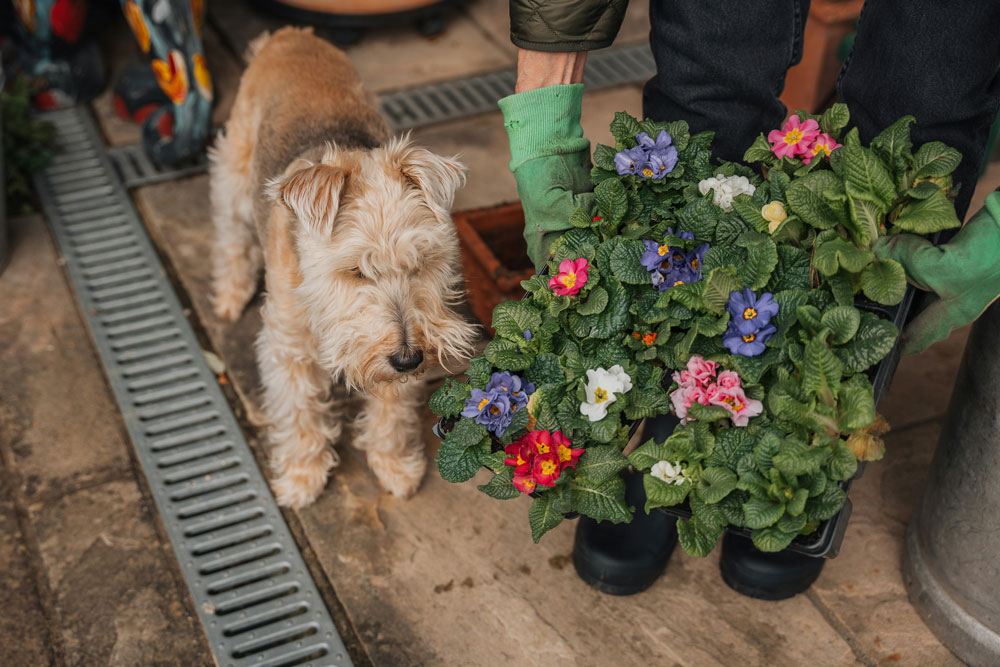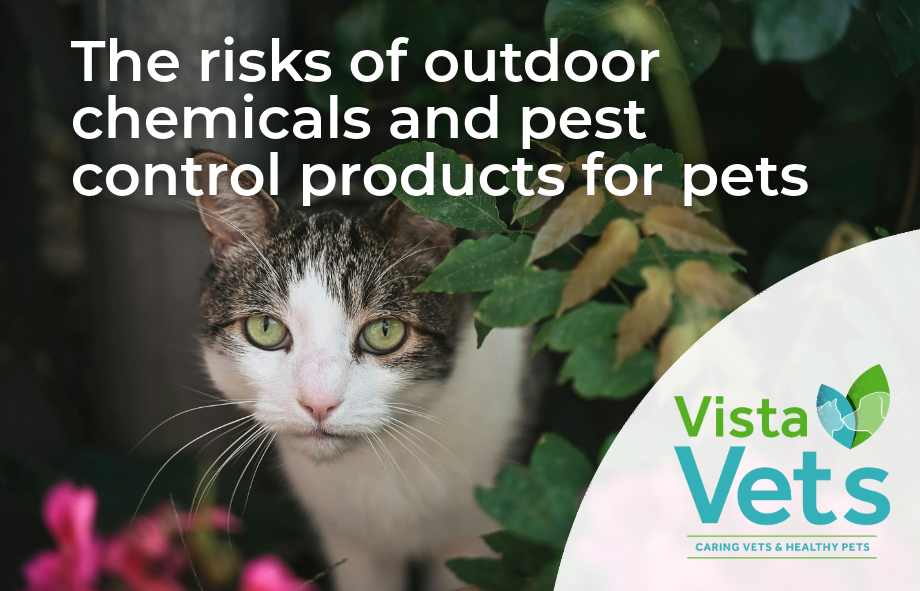Spending time outdoors is great for pets, but it’s important to be aware of the risks posed by outdoor chemicals and pest control products. Many of these substances can be harmful, or even deadly, to dogs, cats, and other animals if ingested, inhaled, or absorbed through the skin. In this blog, we’ll explore the risks associated with outdoor chemicals and pest control products and provide tips on how to keep your pets safe.

Common outdoor chemicals that can be dangerous to pets:
- Slug bait: Slug baits often contain metaldehyde, a toxic chemical that can cause tremors, seizures, and even death in pets if ingested.
- Weed killers: Glyphosate-based weed killers can lead to vomiting, diarrhoea, and kidney damage if pets are exposed to them in significant amounts.
- Fertilisers: Some fertilisers contain harmful additives, such as bone meal or blood meal, which can cause blockages, vomiting, or poisoning if consumed by pets.
- Insecticides: Many insecticides contain permethrin or pyrethroids, which can be toxic to cats, causing neurological issues such as tremors and seizures.
- Rodenticides: Rat and mouse poisons can cause severe internal bleeding or neurological damage in pets, especially if ingested.
Symptoms of Chemical Poisoning in Pets:
It’s crucial to recognise the symptoms of chemical poisoning in pets so you can act quickly. Here are some signs to look out for:
- Vomiting or diarrhoea
- Drooling or foaming at the mouth
- Tremors or seizures
- Lethargy or weakness
- Difficulty breathing
If you suspect that your pet has been exposed to outdoor chemicals or pest control products, contact your vet immediately for advice or treatment.

How to Protect Your Pets from Outdoor Chemicals:
Here are some tips for keeping your pets safe from harmful outdoor chemicals:
- Opt for pet-friendly alternatives: Many manufacturers now produce pet-safe versions of fertilisers, weed killers, and insecticides. Always choose these when possible.
- Store chemicals securely: Keep all outdoor chemicals and pest control products locked away or stored in areas where your pets cannot access them.
- Follow the instructions: When using chemicals, follow the manufacturer’s instructions carefully, especially with regard to re-entry times for pets.
- Clean up spills: If you accidentally spill any chemicals, clean them up immediately and ensure the area is safe before allowing your pets back outside.
- Supervise pets outdoors: Keep a close eye on your pets when they are in the garden, particularly if you’ve recently applied any chemicals or pest control products.
What to Do If Your Pet Is Exposed to Chemicals:
If your pet comes into contact with outdoor chemicals, it’s important to act quickly. Here’s what you should do:
- Contact your vet immediately: Provide details of the chemical your pet was exposed to and follow your vet’s advice.
- Rinse off chemicals: If the chemical is on your pet’s fur or skin, rinse the area thoroughly with water to reduce further absorption.
- Bring packaging to the vet: If possible, bring the packaging of the chemical product to the vet. This will help in determining the best course of treatment.
Regular Vet Visits for Pet Safety
At Vista Vets, we provide expert advice on how to keep your pets safe from outdoor chemicals and other hazards. As part of our Vista Pet Club, we offer regular check-ups and guidance to ensure your pet stays healthy, happy, and safe in every environment.
